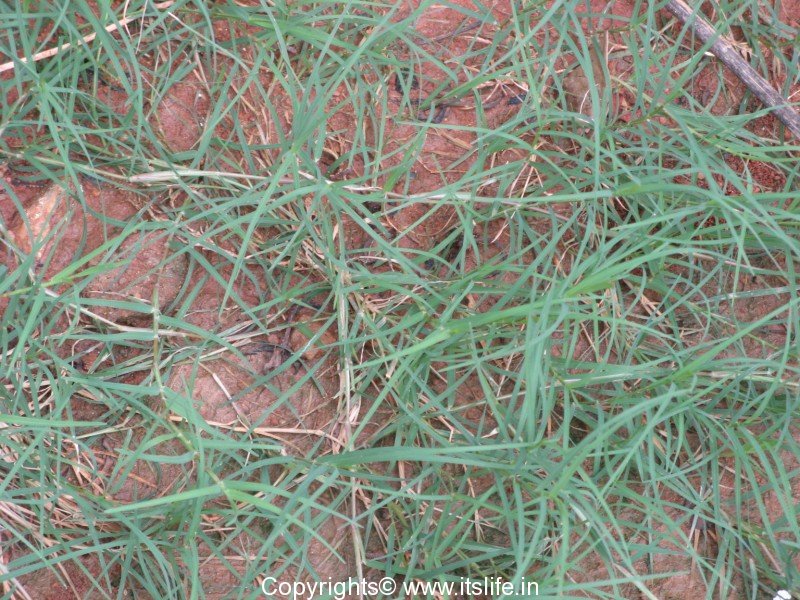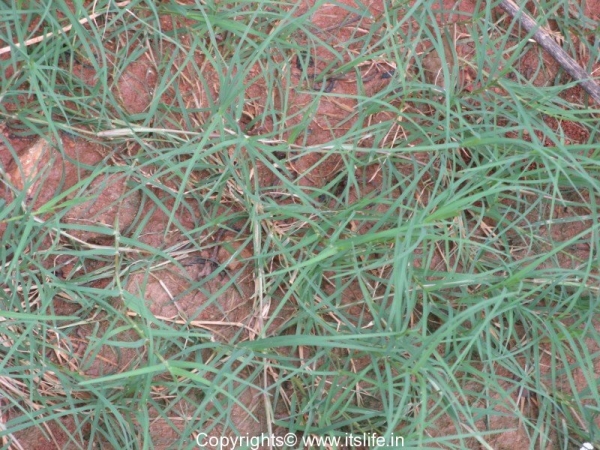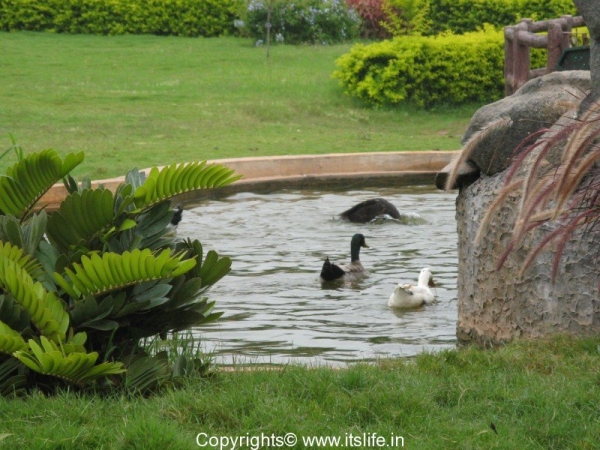Botanical name of Bermuda Grass popularly known as Durva Grass / Patra in India is Cynodon dactylon. It belongs to Poaceae (grass) family. Common names are Bahama Grass, Devil’s Grass, Couch Grass, Wire Grass, Indian Doab.
Durva Grass is the most sought after perennial grass for lawns in landscaping gardens. This is native of east Africa, Australia, Southern Europe, and Asia. As the weed spread to North America from Bermuda it came to be known as Bermuda Grass.
In India it is a weed found around the country.
Babies after a bath are blessed in Kannada by the following word: “Kallagu Garike Beragu”. The meaning is become as strong as a stone and become like the root of the Garike hullu / Bermuda Grass / Durva Grass. This is because the root of Durva grass can penetrate to over 2 meters in depth, the grass grows fast, and survives the toughest of the tough climate.
Lord Ganesha is offered 21 blades of Bermuda Grass dipped in Sandal paste during Ganesha festival. A blade of grass is also offered to Ganesha during the 21 patra (leaves) pooja while chanting “Om Gajananaya namaha, Durva Patram Samarpayaami”.
The grey-green or off-white blades are short thin and long. They look very elegant and the stems can grow to 30 cms tall. Bermuda grass is a creeping grass, and creeps along the ground and root where ever a node touches the ground, forming a dense mat.
Flowers bloom on a spike with 3 to 7 finger-like spikes that originate from a single point. Each of the spikes is 1 to 3 inches long. Seeds are produced from these spikes and are wind-pollinated.
Uses:
Bermuda Grass / Durva Grass is used in Ayurveda, Unani, and Homeopathy to treat many ailments. Wild animals graze this grass. The grass growing wild helps to prevent soil erosion.
Propagation:
Propagation is through seeds, runners, and rhizomes. Plant them under full sun and water twice a day.




